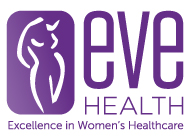What to do when period pain is getting in the way of living your best life. We see many young women with painful periods that are interfering with their ability to go to school, play sport, hang out with friends and family and generally can make them feel pretty miserable. By the time we see them, often it has been going on for a long time and the longer it goes on, the worse it tends to get.
Often young women are told it’s normal to have period pain and to just suck it up, but for girls with debilitating period pain this is impossible and these kinds of sentiments only make it worse.
We are often asked what IS normal and what symptoms should I look out for that may indicate something else is going on. We are also asked what are the first steps to help address pain and what are the steps to help to make things better.
Most women get some period pain due to prostaglandin (an inflammatory compound that is released as the lining of the uterus sheds with a period) but this pain should only last for the first one or two days before and one or two days of your period. If the pain persists all throughout your period or between cycles this could be a sign of endometriosis.
With normal period pain, it is usually relieved to a large degree with medications like nurofen and panadol taken regularly. If your pain is not helped by these medications that is a red flag that something is wrong and should be investigated by a doctor.
Other symptoms around your period like migraines, nausea, spotting before your period and painful sex are also symptoms that could make endometriosis more likely.
The biggest thing to take note of is the effect of the pain on your ability to live your life the way you want! If you are consistently missing days of school, not able to play sport or enjoy life, than your period pain is NOT normal and you should seek further advice to get your pain under control.
The best place to start is your GP. If simple things like using heat packs, nurofen and panadol are not effective you may want to discuss hormone therapy with your GP. Your doctor will talk about starting some progesterone tablets or the pill which can help to decrease pain and bleeding by about 50%.
It can sometimes be helpful to use the pill to skip or completely suppress periods. This is completely safe and just keeps the lining of the uterus thin and the continuous hormone tablets support the lining so it does not need to shed. Without shedding, the lining does not bleed and release the inflammatory factors and then hopefully the pain should be gone or significantly lessened. The Mirena is an intrauterine device that contains progesterone that also acts to keep the lining of the uterus thin. Most girls who have a Mirena have no periods after 12 months.
If you try hormone treatment for three to six months and get little relief, I would recommend requesting a referral to a specialist who deals with pelvic pain and endometriosis. Many of the specialists at Eve Health are very experienced with the management of pelvic pain and endometriosis.
It is important to stress that you don’t always need an operation if we suspect endometriosis. If hormone treatment works to relieve pain and enable you to live a brilliant life, then the hormone treatment is working to prevent endometriosis from growing. However, if the hormone treatment is not working a laparoscopy may be the next step.
Laparoscopy is a key hole surgery to diagnose and remove endometriosis. If endometriosis is diagnosed and removed it is still important to suppress periods with hormones to prevent it growing back – this can be with oral progesterone, the pill, visanne or with the mirena IUD.
Many girls think that an operation will be the fix when it comes to endometriosis and painful periods, but for most women it is just the beginning. While surgery can diagnose and remove endometriosis, it can’t fix other factors that may contribute to your overall pain, such as pain nerves that have become sensitised and pelvic floor muscles that have become too tight and tense over time.
If pain does persist after surgery, it’s important to remember these things and treat them early. Therapies like specialist physiotherapy, pelvic floor relaxation, nerve desensitising medications, mindfulness and a healthy diet are often just as important as surgery in getting better and staying better.
Organisations like QEndo, Endometriosis Australia and the Pelvic Pain Foundation of Australia have excellent information and resources on their websites. They also provide a platform to be able to communicate with other young women about their experiences. This sense of community around pelvic pain and endometriosis is growing and means that young women can be well supported and empowered with information that will help you to take charge of your own body and find the best people to help you get back to living your best life.
If pelvic pain is interfering with your life and happiness, your ability to go to school or work then please know that there is help available. Eve Health has so much experience. We have gynaecologists, a specialist pain medicine physician, specialist physios as well as myself as an adolescent gynaecologist.
If you are struggling with period and pelvic pain, please call (07) 3332 1999 to make an appointment with one of our gynaecologists.
Comments are closed.
